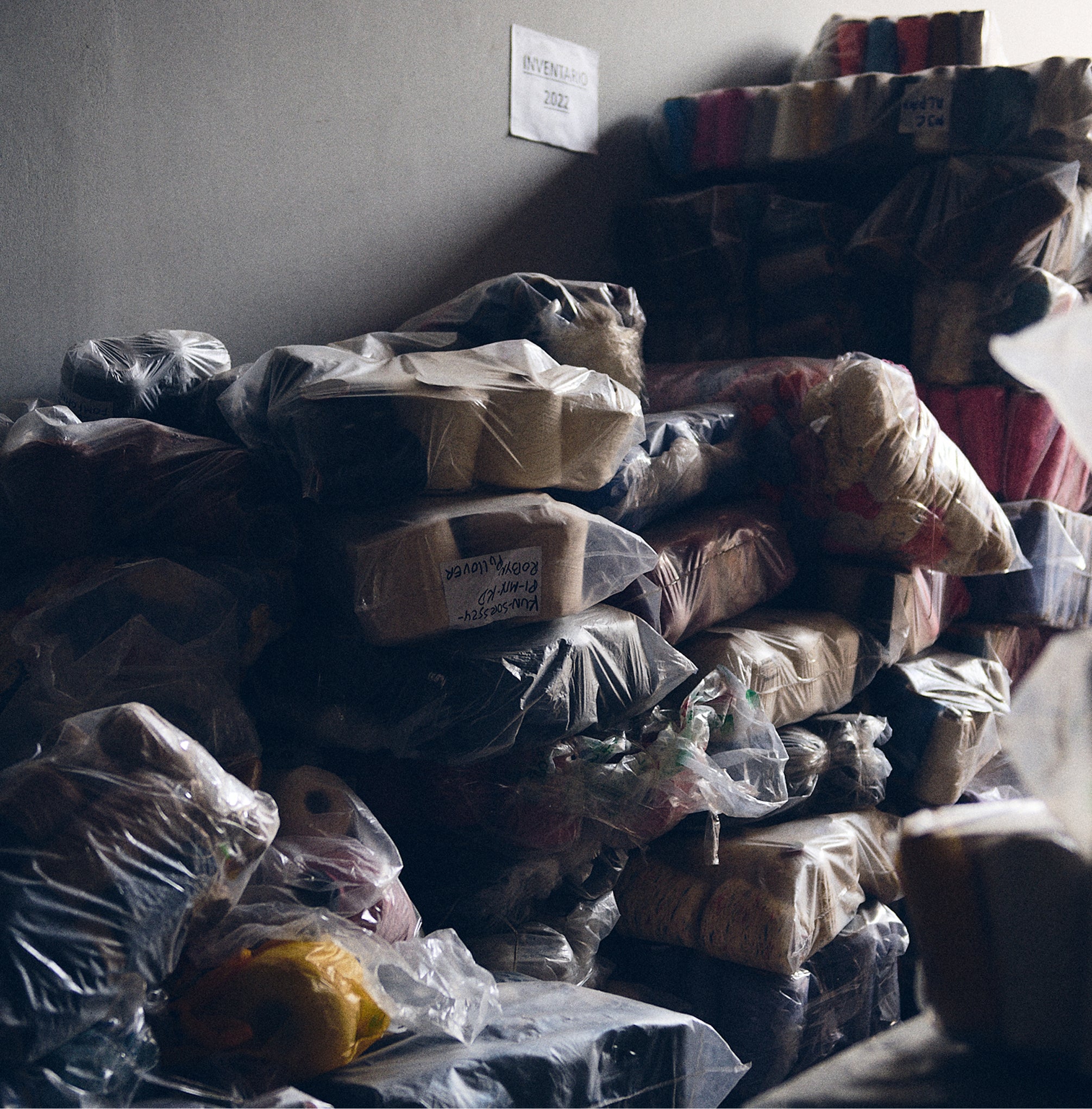Durability, functionality, comfort, and sustainability are all reasons why alpaca wool is one of the world’s most desired fibers. Maybe it’s also because wearing alpaca is like blanketing yourself in nature’s magic and mystical Peruvian traditions that can be traced all the way back to the Incas. We love alpaca for all of these reasons and more. In fact, seeing perfectly good alpaca yarns going to waste is a big part of why we founded The Endery! We just couldn’t pass up on all the potential this natural fiber holds, even as deadstock.

Gentle by Nature: Alpaca Environmental Impact
Alpacas quite literally have a gentle footprint on their environment. Unlike heavy-hooved sheep and goats, these camel-cousins walk with a light, padded step that keeps the land intact. Alpaca also require less food and water than other livestock. They even graze gently, only eating what’s above ground rather than uprooting plants.
Because of their low-impact nature, the Andes region is virtually unaffected by alpaca farming while areas such as Mongolia suffer from barren, overgrazed lands from years of cashmere farming.
The Performance Benefits of Alpaca Wool
The Andes climate ranges from mild to frigid, and the alpaca that live there have adapted to even the harshest weather and high altitudes. Ultimately, alpaca fiber, just like the animal, is made for enduring wide-ranging temperatures and conditions.

Alpaca clothing is strong as hell, yet durable and light. It’s the original performance fiber, adept to different temperatures and activities, keeping you warm when you need it and breathing when you need to cool off. Hiking, cuddling, dancing, baking, rollerskating—you name it, alpaca can go there with you.
The Earth-Friendly Characteristics of Alpaca Fiber

Microfibers are teeny-tiny pieces of fiber that shed from our clothing. When clothing made from polyester and acrylic fabric sheds microfibers, they release their toxic components and microplastics into the ecosystem.
Synthetic fibers also contribute to deforestation and simply don’t last long enough in our wardrobes to be worth the damage they cause.
Your alpaca sweater will shed some microfibers, but those friendly little fuzzies decompose naturally without harming wildlife or humans. And, you can expect your alpaca knits to last a lifetime when cared for properly.
As if alpaca needed to win us over anymore, it’s actually naturally dirt repelling, so washes only need to be few and far between. If you want an easy-care wardrobe with low water intensity, look no further than alpaca wool.
They’re Downright Lovely Creatures
Hang out with an alpaca long enough, and you’re sure to hear them hum. Yes, they hum! Alpaca can’t help but share a song when they’re happy.
These mythical mammals also have an incredibly zen-like nature, which helps you feel grounded and peaceful when in their presence. We love spending as much time as possible with the alpacas when we’re in Peru.

Supporting Peruvian Alpaca Farmers & Knitters
Our knitting workshop is located in Lima, Peru, where the local farmers, sorters, and spinners use traditional methods to take the fleece from heaps of untamed shear to knit-ready yarn.

Catching the yarn at what would be the end of its life cycle, the artisans we partner with craft a new fate for this deadstock in the form of comfortable, colorful knits that you can wear, share, and customize.
Read more

Can you believe that January 2020 was just 12 months ago? It's been a year of radical change, and with that we've seen amazing displays of creativity, community, and impact. Zoom chats and quiet n...

Alpaca wool garments can last a lifetime or longer if cared for correctly, making them a great investment for your sustainable wardrobe. Natural dirt-repelling and antimicrobial qualities mean alpa...







